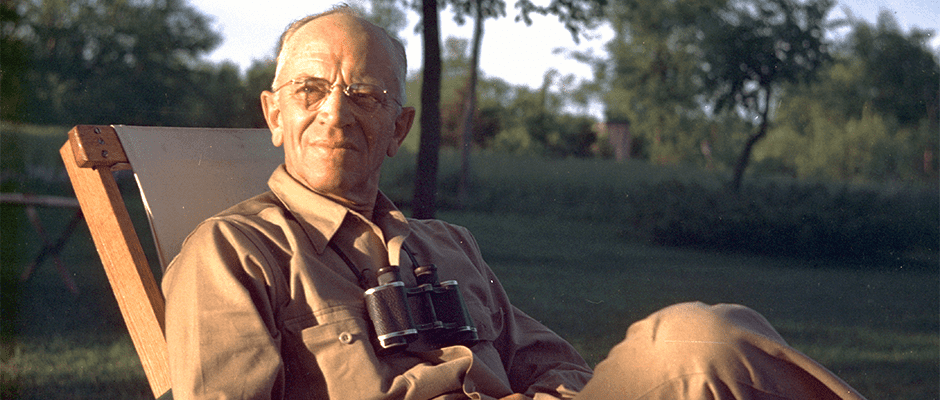Share this article
What would Aldo Leopold think of our profession?
If Aldo Leopold were alive today, what would he think of the wildlife profession?
This was the topic the 2017 Aldo Leopold winner and keynote speaker Jim Nichols addressed Sunday morning at the TWS 23rd annual conference in Raleigh, N.C., in his presentation, “The Evolution of the Wildlife Profession.”
Leopold, who was an American ecologist, conservationist and pioneer of the wildlife field, published a book on game management in 1933 in which he defined foundational principles of the wildlife profession. Based on Leopold’s writings game, Nichols believes the profession can be defined by two things: the objectives the profession hopes to accomplish and the methods individuals use in the profession to do so.
When Leopold was alive, methods of research were much simpler, according to Nichols, while today sophisticated methods such as telemetry and individual identification via DNA are common tools. But Nichols focused on basic quantitative methods, including models and ways of collecting data.
In Leopold’s book, he speaks about models and how making predictions with these models is important. Today, wildlife professionals still use Leopold’s idea of models, but they’re more complex now. “To capture nature’s complexities, we need these extra complications,” Nichols said, adding that Nichol the wildlife profession has done a good job of keeping up with developments of modeling systems.
Nichols also says the wildlife profession has done a good job of estimating the information that has to go into these models in order to make predictions. These methods including band recovery, capture-recover and distance sampling have been successful and have been assimilated into the field with many people using the same estimation models. Further, others such as the biomedical field have borrowed some of these methods of collecting information. “We ought to be proud of this contribution,” he said.
In Leopold’s book, he also mentions decision making is often done by only a few experts’ opinions rather than going out and doing experiments and studies. But Nichols says while the latter is the preferred way of making decisions, the majority of the wildlife field is still making decisions with only a few expert opinions.
So, how would Leopold grade the profession today, taking into account his recommendations for how to run the profession? Nichols says Leopold would be quite impressed by the methods that are currently used to collect data and the models that have been established. But, at the same time, Leopold might want to see some improvements in how wildlife agencies and organizations make decisions.
Nichols says partnerships between stakeholders are important in achieving Leopold’s goal of how wildlife management ought to work, especially regarding decision making. “The challenge is to make increased efforts to try to begin to implement this and get closer to his vision,” he said.
The event ended with President Gary Potts presenting the 2016 Aldo Leopold Memorial Award to Dale McCullough, who has conducted wildlife work in the U.S., Costa Rica, China, Russia, Vietnam, Japan and others. He has published 170 papers that are often cited in other literature. “For me, the Leopold award is a great award, yes, but it’s also the background of what Aldo Leopold contributed to this field,” he said.
Header Image: Courtesy of Aldo Leopold Foundation.








